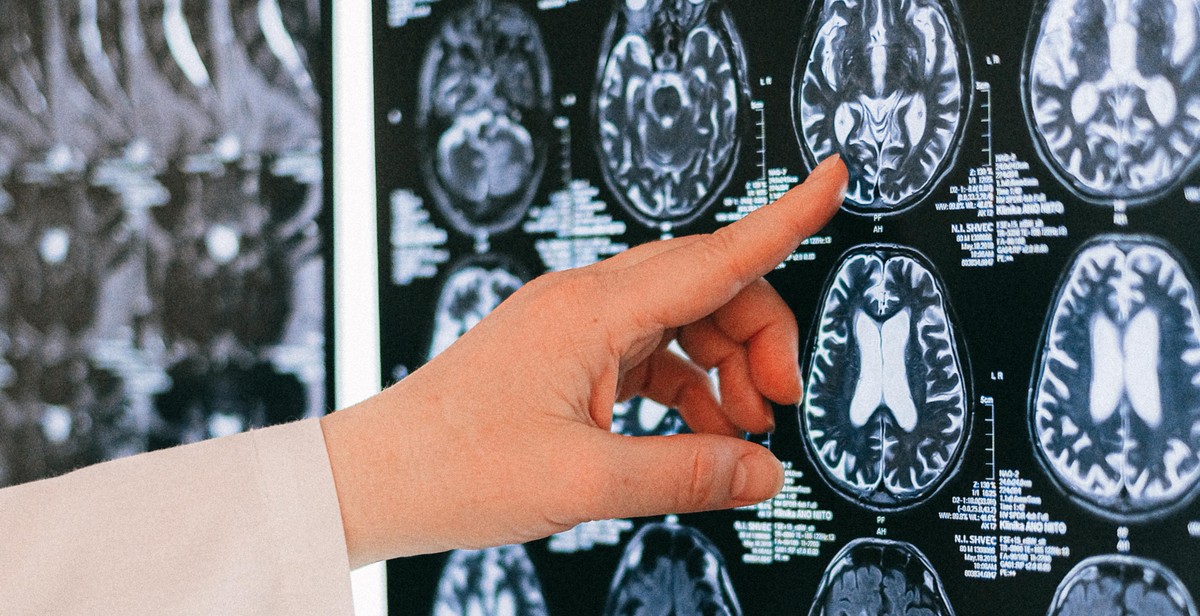Gamification and Mental Health: Can Games Make Us Happier?
Gamification is not a new concept, but it has been gaining popularity in recent years. It involves using game-like elements and techniques in non-game contexts to motivate and engage people. The idea behind gamification is to make tasks that are usually considered boring or tedious more enjoyable and rewarding.
The use of gamification in mental health is an interesting area of research. Mental health is a major concern in today’s society, and finding ways to improve it is crucial. Games have the potential to positively impact mental health by providing a fun and interactive way to learn coping skills, reduce stress, and improve overall well-being.
As a professional content creator and writer, I have researched extensively on the topic of gamification and mental health. Through my personal experience, I have seen the positive effects of gamification on mental health. Games have helped me to manage stress, improve my mood, and increase my motivation.
This article will explore the relationship between gamification and mental health, discussing the benefits and limitations of using games as a tool for improving mental health. We will also look at some examples of gamification in mental health and the future of gamification in this field.
What is Gamification?
Gamification is the process of applying game design principles and mechanics to non-game contexts to engage and motivate people to achieve their goals. It is a powerful tool for businesses, educators, and healthcare professionals to increase motivation, engagement, and retention.
Defining Gamification
Gamification involves turning routine or mundane tasks into games. This can be achieved by incorporating game elements such as points, badges, leaderboards, and challenges to make the task more enjoyable and engaging. Gamification can be applied in various contexts, including education, healthcare, marketing, and employee training.
Examples of Gamification
Gamification has been widely adopted in various industries and has proven to be effective in improving user engagement and motivation. Here are some examples:
- Educational games: Gamification has been used in education to make learning more engaging and fun. Educational games, such as Kahoot and Duolingo, use game elements to make learning more interactive and enjoyable.
- Healthcare: Gamification has been used in healthcare to improve patient engagement and adherence to treatment plans. Apps like Fitbit and MyFitnessPal use game elements to motivate users to exercise and eat healthy.
- Employee training: Gamification has been used in employee training to improve engagement and retention. Companies like Deloitte and IBM have used gamification to train employees on complex topics.
Gamification has the potential to improve mental health by making therapy more engaging and enjoyable. By incorporating game elements into therapy, patients may be more likely to actively participate in their treatment and achieve better outcomes.

The Benefits of Gamification on Mental Health
Gamification is the process of adding game-like elements to non-game activities. It has been found to have several benefits on mental health, including but not limited to:
Improving Mood
Playing games can help improve mood and reduce symptoms of depression. When we play games, our brain releases dopamine, a chemical that makes us feel happy and rewarded. In addition, games can distract us from negative thoughts and emotions, allowing us to focus on the present moment and feel more positive.
Reducing Stress and Anxiety
Gamification can also help reduce stress and anxiety. Games provide a sense of control and mastery, which can help reduce feelings of helplessness and anxiety. In addition, games can be a healthy way to cope with stress, allowing us to take a break from real-life stressors and focus on a fun and engaging activity.
Increasing Motivation and Engagement
Games can also increase motivation and engagement in non-game activities. By adding game-like elements to tasks such as exercise or learning, we can make these activities more enjoyable and rewarding. This can help increase our motivation to engage in these activities and ultimately improve our mental and physical health.
- Gamification can improve mood, reduce stress and anxiety, and increase motivation and engagement.
- Playing games releases dopamine, which makes us feel happy and rewarded.
- Games provide a sense of control and mastery, which can help reduce feelings of helplessness and anxiety.
- Gamification can make non-game activities more enjoyable and rewarding, increasing our motivation to engage in them.
| Benefits of Gamification on Mental Health | |
|---|---|
| Improving Mood | Playing games releases dopamine, which makes us feel happy and rewarded. |
| Reducing Stress and Anxiety | Games provide a sense of control and mastery, which can help reduce feelings of helplessness and anxiety. |
| Increasing Motivation and Engagement | Gamification can make non-game activities more enjoyable and rewarding, increasing our motivation to engage in them. |

The Science Behind Gamification and Mental Health
Gamification refers to the use of game design elements in non-game contexts to motivate and engage people. It has been increasingly used in mental health interventions due to its potential to enhance motivation, engagement, and enjoyment of therapeutic activities. Several scientific theories support the use of gamification in mental health.
Dopamine and Reward Systems
One of the most studied theories behind gamification is the dopamine and reward systems. Dopamine is a neurotransmitter that plays a crucial role in motivation, reward, and reinforcement. When we engage in activities that trigger dopamine release, such as playing games, we experience pleasure and satisfaction. By incorporating game-like elements in mental health interventions, we can activate the reward systems, enhancing motivation, and engagement. This can help individuals with mental health conditions to feel more involved in their treatment, leading to better outcomes.
Neuroplasticity and Brain Training
Another theory that supports gamification in mental health is neuroplasticity, the brain’s ability to change and adapt in response to experiences. Gamification can be used to provide brain training exercises that challenge and stimulate the brain, leading to improved cognitive function and mental health. By incorporating elements such as problem-solving, memory tasks, and attention exercises, individuals can improve their cognitive abilities and enhance their mental health.
Social Connection and Support
Finally, gamification can also enhance social connection and support, which is essential for mental health. Many games include social aspects, such as team-building, competition, and collaboration. By incorporating social elements in mental health interventions, individuals can feel more connected to others, reducing feelings of loneliness and isolation, and improving their mental health.
In conclusion, gamification has been increasingly used in mental health interventions, and several scientific theories support its potential benefits. By activating the reward systems, providing brain training exercises, and enhancing social connection and support, gamification can help improve mental health outcomes.

Gamification and Mental Health Apps
Gamification in mental health apps has become increasingly popular in recent years, as more and more people seek accessible and engaging ways to improve their mental health. These apps use game mechanics and design elements to motivate users to engage in activities that promote well-being and mental health.
Popular Mental Health Apps with Gamification Features
Some of the most popular mental health apps with gamification features include:
- Headspace: This app uses gamification to encourage users to meditate regularly, with rewards for completing daily meditation sessions.
- Happify: Happify uses games and activities to help users reduce stress, build resilience, and improve overall emotional well-being.
- SuperBetter: SuperBetter is a game-based app that helps users build resilience and overcome challenges through various quests and challenges.
Effectiveness of Gamification in Mental Health Apps
Research has shown that gamification can be an effective tool in promoting mental health and well-being. A study published in the Journal of Medical Internet Research found that gamification can increase engagement and motivation in mental health interventions, leading to improved outcomes.
Gamification can also help reduce the stigma associated with mental health issues by making mental health interventions more accessible and fun. By incorporating game elements into mental health interventions, users may be more likely to engage in these activities and feel less self-conscious about seeking help for mental health concerns.
| Pros | Cons |
|---|---|
| Increased engagement and motivation | Potential for over-reliance on app |
| Reduces stigma around mental health issues | Not a substitute for professional mental health care |
| Fun and accessible way to promote mental health | May not be effective for everyone |

Potential Risks and Drawbacks of Gamification on Mental Health
Gamification has the potential to positively impact mental health by providing users with a sense of accomplishment, motivation, and engagement. However, there are also potential risks and drawbacks to consider.
Over-reliance on External Rewards
One potential risk of gamification is the over-reliance on external rewards. When individuals become too focused on achieving rewards such as badges, points, or prizes, they may lose sight of the intrinsic value of the activity. This can lead to a decrease in motivation and engagement when rewards are no longer offered.
Additionally, relying too heavily on external rewards can create a sense of entitlement or expectation for rewards in other areas of life. This can lead to disappointment, frustration, and a lack of satisfaction when rewards are not present.
Competition and Comparison
Another potential drawback of gamification is the emphasis on competition and comparison. While competition can be motivating for some individuals, it can also create a sense of anxiety, stress, and pressure to perform. This can lead to negative impacts on mental health, particularly for individuals who are already prone to anxiety or depression.
Furthermore, the constant comparison to others in a gamified environment can lead to feelings of inadequacy or low self-esteem. This can be particularly harmful for individuals who struggle with self-worth or body image issues.
| Potential Risks and Drawbacks | Solutions |
|---|---|
| Over-reliance on external rewards | Encourage intrinsic motivation and emphasize the value of the activity itself |
| Competition and comparison | Provide opportunities for collaboration and emphasize personal growth rather than comparison to others |
Overall, while gamification can have positive effects on mental health, it is important to consider and mitigate potential risks and drawbacks in order to ensure a healthy and sustainable approach to mental wellness.
Conclusion
Overall, gamification has shown promise in improving mental health. It provides a fun and engaging way to motivate individuals to take care of their mental health. By incorporating game elements such as points, badges, and levels, individuals feel a sense of accomplishment and progress, which can boost their self-esteem and confidence.
Furthermore, gamification can help individuals develop healthy habits and coping mechanisms. By practicing mindfulness or breathing exercises through a game, individuals can learn to manage stress and anxiety in a more enjoyable way.
However, it is important to note that gamification should not be seen as a replacement for professional mental health treatment. While it can be a helpful tool, it should not be relied upon solely for treatment.
Final Thoughts
As a professional article writer and content creator, I have seen the potential benefits of gamification in improving mental health. Through personal experience, I have seen how incorporating game elements into my daily routine has helped me develop healthy habits and cope with stress and anxiety.
Overall, gamification is a promising approach to improving mental health. By making mental health care more engaging and fun, individuals may be more likely to prioritize their mental health and seek out professional treatment when needed.
